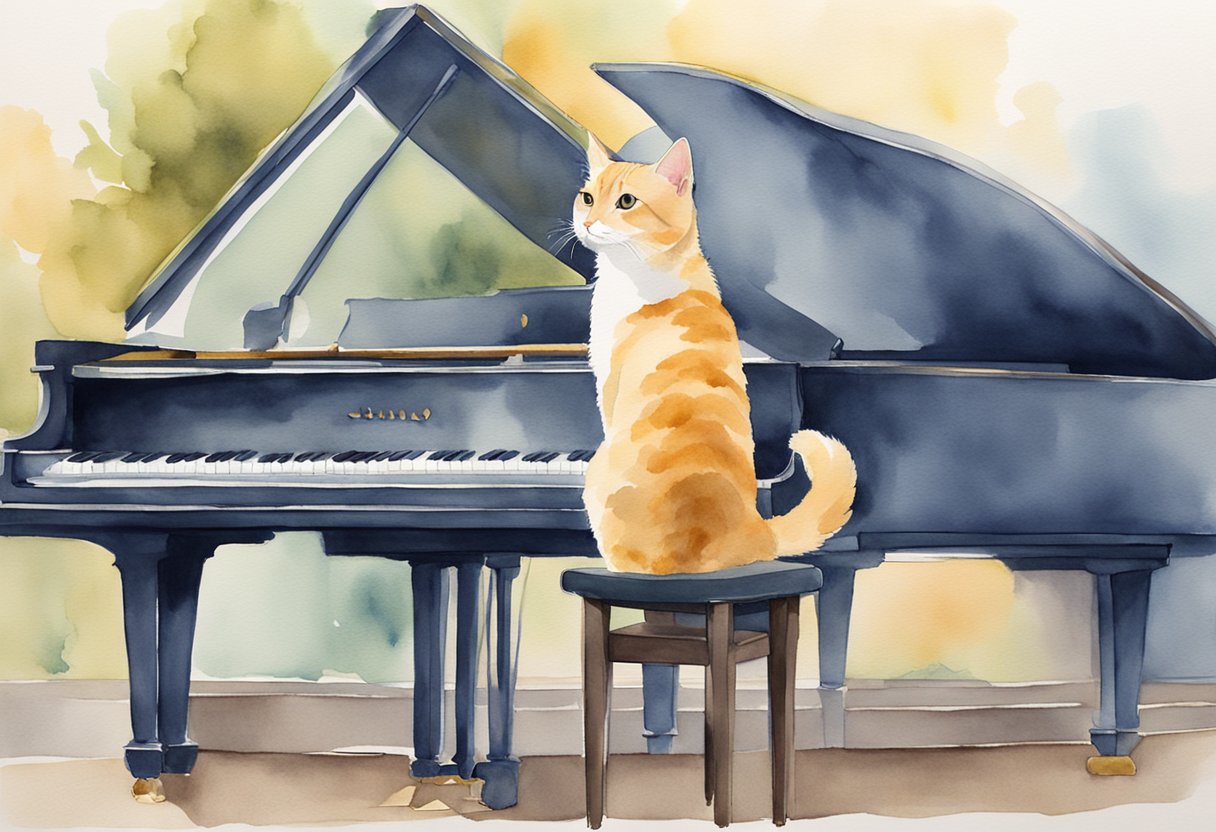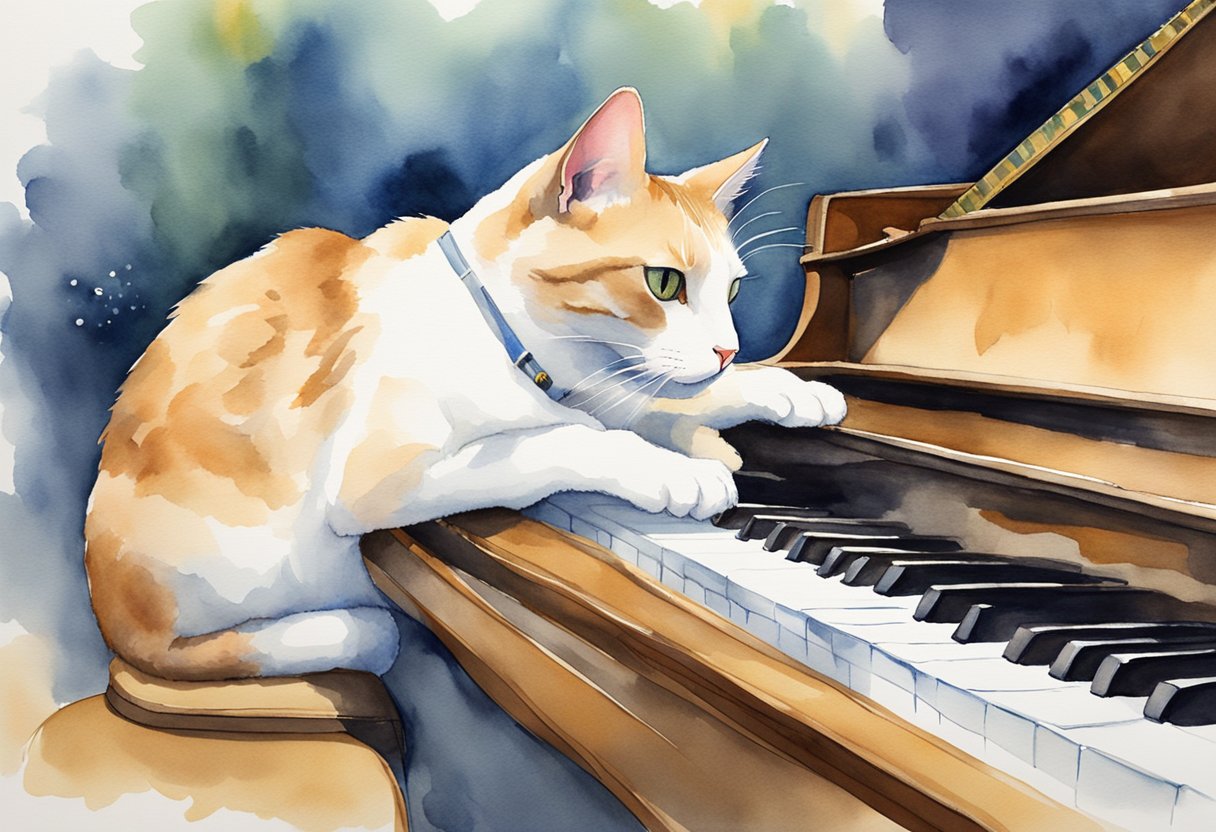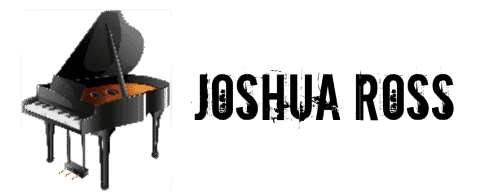As an Amazon Associate I earn from qualifying purchases.
Cats often display a preference for piano music, and as a professional pianist and music teacher, I’ve observed this curious phenomenon firsthand. The serene melodies and the gentle harmonics seem to captivate our feline friends, providing a sense of calm and contentment.
For example, when I play Debussy, whose compositions carry soft transitions and flowing rhythms, I often find my cat Harley lounging peacefully nearby, seemingly drawn to the soothing sound waves emanating from the keys.
Want to Learn Piano?Click Here

In teaching music, we talk about the concept of resonance, where a particular pitch or tone can vibrate in sync with another object, including, as it seems, a cat’s sensibilities. Piano music, with its wide range of notes and the ability to sustain them, creates an environment that may be quite alluring to cats.
Their sensitive hearing allows them to hear sounds we can’t, and they may find the purity of pitch and the richness of overtones produced by a piano especially pleasing.
When introducing your cat to piano music, it might be an intriguing experiment to see if certain pieces elicit a more noticeable reaction, thus exploring the dynamic relationship between your pet and the sounds of this classic instrument.
Understanding Feline Affinity for Music

Exploring why your feline friends may show a preference for piano music, it’s important to consider how cats interact with music through their unique auditory system. You’ll find that their hearing capabilities and reaction to certain musical elements like tempo and tone play a significant role.
Cats’ Auditory Sensitivity and Music
Cats have an incredibly sensitive hearing system, capable of detecting a wide range of frequencies that are imperceptible to humans. They can hear higher-pitched tones, making their auditory experience of music different from ours.
You may notice that your cat reacts to high-pitched vocalizations or the pitter-patter of notes at the upper end of the piano scale.
The Science Behind Cats’ Preference for Piano
Research suggests that cats may exhibit a natural preference for the piano due to its similar frequency range to that of feline vocalizations. When playing compositions that mimic these vocal ranges, you may find your cat curling up near the piano, soothed by the familiar sounds.
Influence of Tempo and Tone on Cats’ Mood
The tempo and tone of a piano piece can be calming for cats, or it can stimulate their playful instincts. Melodic lines with a slow, steady pace can induce a state of relaxation, whereas a livelier tempo might encourage your cat to become more active.
Pay attention to how the dynamics and articulations of your playing may evoke different reactions from your feline audience.
Piano Music and Its Effects on Cat Behavior
This section delves into the nuances of musical compositions by David Teie designed specifically for cats, how piano music can serve therapeutic purposes, and the types of classical pieces that may positively affect your furry friend’s mood.
Cat-Specific Music and Composer David Teie’s Contributions
Composer David Teie has been at the forefront of creating music for cats, with his compositions factoring in the frequencies and tempos that appeal to a cat’s sense of hearing.
His work considers the natural vocalizations of cats and even the soothing purring sounds, incorporating them into music which taps into feline emotions. As a pianist, recreating these tonal structures and vibrations on the piano could lead to a tranquil atmosphere for whisker-twitching contentment.
Therapeutic Benefits of Piano Music for Cats
Piano music, with its clear tones and the ability to create a calming effect, serves as a therapeutic agent for cats, particularly in potentially high-stress environments like animal shelters.
The sustained notes from piano pieces, especially those from composers like Mozart and Bach, are known for being easy on the ears and can contribute to an environment of relaxation and reduced anxiety for kittens and adult cats alike.
Selections of Classical Piano Music for Cats
While your feline might not have a preference between Mozart, Beethoven, or Bach, selections from these composers’ classical piano works may have a soothing effect. Pieces featuring a gentle flow and lower bass frequencies can mimic the comforting purr of a mother cat and potentially lead to a purring, content furry friend.
When choosing music to play for your pet, consider opting for piano works that offer a steady and continuous sound without abrupt changes, which might be more easy on the ears and consonant with your cat’s listening preferences.
Hello & thanks for stopping by! I’m a professional concert pianist and piano instructor. In the United States, I’ve given successful performances in several places including New York, Florida, Connecticut, & New Jersey, I have also performed internationally in Italy and made my Carnegie Hall debut in 2014. I enjoy blogging about the piano, the art of performance, general music, current events and the latest in music production.
